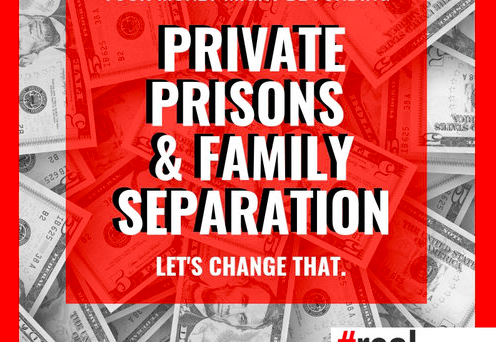Real Money Moves: divesting from prisons to invest in communities

Symone is Beneficial State Foundation’s Digital Engagement Manager based in Oakland, CA.
Last week, Atlanta-raised rapper 21 Savage was released on bond from the federal immigration detention center he was held at for more than a week. When the internet got wind that 21 Savage had been detained by ICE, Black Lives Matter partnered with the rapper’s team to organize a #Free21Savage rally.
21 Savage’s team, along with a number of his fans, claim the artist was detained as retaliation for his performance on The Tonight Show Starring Jimmy Fallon, which included an alternate verse for the song A Lot and called attention to children who are being held in immigration detention centers. Media coverage of 21 Savage’s detention also fueled broader conversations about immigration reform, pathways to citizenship, and the criminalization of Black immigrants. Hundreds of thousands of people signed a petition calling for 21 Savage to be released, and hip-hop mogul Jay-Z even hired an attorney to get 21 Savage released from detention.
On Valentine’s Day, families and organizers rallied outside of Wells Fargo and JP Morgan Chase demanding that these banks—that hold our deposits—put an end to financing private prisons. The Real Money Moves campaign asks all of us, the public, to take a look at who we bank with, and if we don’t like what they’re doing, to “break up” with our banks. The success of the #Free21Savage campaign and the community support that enabled this victory reveal the power that individuals actually have in prison divestment efforts—which is one of the messages the Real Money Moves campaign intends to spread.
The Real Money Moves Campaign—a national initiative of athletes, actors, artists and everyday people who want their money out of private prisons and invested back into communities—is partnering with grassroots organizers, nonprofits, and public figures to help advance a cultural shift in which we all recognize the dangers of private prisons and the ways people unknowingly contribute to the criminalization and detention of our own neighbors, friends, and loved ones.
Finance underpins nearly every facet of our society, and the choices we make around where we spend and keep our money (aka which bank we use) are economic votes that speak to the issues (and people) that we value—or neglect.
If you’re unsure about the type of activities your bank finances, there are a few steps you can take to figure out whether your bank’s lending and business practices reflect your values:
- Check your bank’s website. Do they provide information about the types of industries they are not financing? (If they don’t, they probably are invested in those industries.)
- Talk with your banker to learn how your bank is supporting local communities. Do they have products and services that are meant to serve the needs of people that big banks often neglect or exploit?
- See if your bank has any certification or associations that demonstrate their commitment to community economic development, such as certified B Corporations, Community Development Financial Institutions, or Community Development Credit Unions.
You can also invest in helping people get free by donating to a community bail fund. If you don’t know of any community bail funds in your area, Appolition is an app that enables you to donate your spare change to a number of charitable community bail funds.
At Beneficial State, we often refer to banking as the original and most powerful form of crowdfunding—as consumers, we pool our deposits into banks, which then leverage our money to make loans to people, businesses, and nonprofits. In an age where it’s become the norm to crowdfund amongst close friends and family to cover emergency expenses, it’s time for us to reexamine our relationship with crowdfunding, and recognize that through our banking choices, we can either continue funding the prison industrial complex, or we can use our power as consumers to back prison divestment efforts.
This blog post reflects the author’s personal views and opinions, and does not represent the views and opinions of Beneficial State Bank and/or Beneficial State Foundation.



